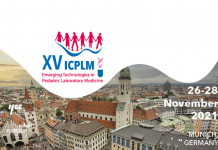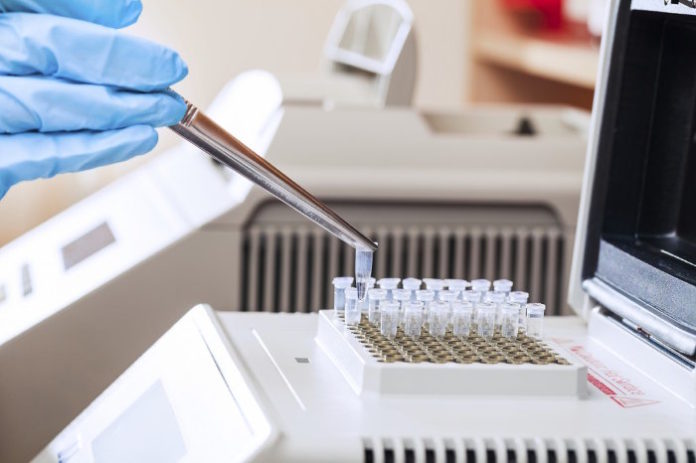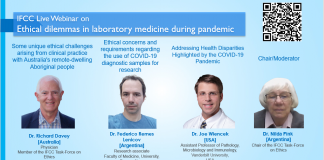The presence or absence of certain mutations can predict who may benefit from certain drugs and who is not likely to respond.
Cancer is the uncontrolled growth of abnormal cells. Multiple factors may contribute to this uncontrolled growth. One such factor is the malfunctioning of proteins involved in controlling cell growth and maturation. The proteins usually malfunction as a result of a mutation in the DNA of the gene that codes for that protein. Some mutations may result in a defective protein that cannot stop cell growth while other mutations may produce a protein with altered function that stimulates cell growth. The net result is unchecked growth and division of these abnormal cells (cancer).
Medical researchers have long studied these changes in genes in order to better understand cancer and to develop drugs to fight it. Their goal has been to create drugs that disrupt a specific step in cancer growth, while doing minimal damage to normal cells. These are called targeted drugs or targeted therapy. What researchers have noted is that specific types of cancer are frequently associated with specific genetic mutations. Not every cancer will have them, but a significant percentage will, and cancers with these mutations usually have a more predictable response to certain drug treatments compared to cancers without these mutations.
These findings have led to two important developments:
- Cancer drugs that inhibit or target very specific proteins associated with certain cancers (Two examples are tyrosine kinase inhibitors and epidermal growth factor receptor (EGFR) antibodies.)
- Genetic tests to detect the presence of mutations in cancer tissue that tell a healthcare practitioner whether the person being tested is likely to benefit from a specific therapy
Medical researchers continue to explore the genetics of cancer and to look for opportunities to develop new therapies. Additionally, some cancers eventually stop responding to certain therapies and develop resistance to that therapy. Genetic research may offer insights into how resistance to therapy occurs.
Why is this testing important?
Standard treatment for cancer usually involves surgery, chemotherapy, radiation therapy, or some combination of these. Treatment with chemotherapy drugs and radiation aims to slow the growth of cancer, keep it from spreading, and kill any cancerous cells that have spread to other parts of the body (metastasized).
Chemotherapy works by attacking cells that are actively growing and dividing. Radiation therapy kills cancer cells by damaging their genes and preventing them from growing and dividing. Both types of therapy can affect all cells that are growing and dividing, including normal cells. This often leads to harmful side effects, and these treatments require careful adjustment to maximize the killing of cancer cells while minimizing the damage to healthy tissue.
Targeted therapy is a newer type of cancer treatment that offers healthcare practitioners and their patients the opportunity to use a drug that has a greater effect on cancerous tissue, reducing many of the side effects associated with standard therapy. It is based on the fact that the genetic makeup of the cancer cells is different than the normal cells around them. Targeted therapy aims to disrupt specific steps or processes that are somewhat unique to the growth of cancer cells. Testing the cancer cells biopsied from patients prior to initiating drug therapy to determine the cancer’s likely response to certain cancer drugs is a key emerging area of testing.
Targeted cancer drugs are expensive, and they generally only work in patients whose cancer has the genetic makeup that they have been developed to work against. Genetic testing prior to beginning therapy is necessary to match the treatment up with the patients and cancers likely to benefit from them.
Examples of targeted cancer drugs for which tests are available include:
- Drugs that bind to receptors on the cell surface and block growth signaling to the cell
- Drugs that are small molecules that cross the cell membrane and block the signals for growth at the receptor’s active site
How is genetic testing for targeted cancer therapy used?
These genetic tests are used to help guide treatment for certain cancers. They help to inform a healthcare practitioner as to whether certain targeted cancer drugs may or may not work.
Genes are the basic units of genetic material, the segments of DNA that usually code for the production of specific proteins. Alterations in DNA are called genetic variants (also polymorphisms or mutations) and occur throughout the population. Variants or mutations are largely inherited and affect all cells, but they can occur later in life, because of exposures to radiation, toxins, or for unknown reasons, and these mutations may result in cancer.
In a variety of cancers, there may be a mutation that leads to an increased amount of a particular protein present in the tumor tissue or to production of a protein that has altered activity. Tumors that have these mutations may tend to grow more aggressively, be more likely to spread (metastasize), and/or may be more resistant to standard chemotherapy. Sometimes, however, the changes in the protein also make the tumors candidates for therapy that targets the changed protein (“targeted therapy”). Genetic tests for cancer therapy detect the mutations that code for these proteins, thus identifying tumors that may be susceptible to targeted therapy.
Conversely, genetic tests may also identify tumors that will not respond to targeted therapy. Certain mutations, when present, make the cancer cells resistant to the drug and targeted therapy will not be used for treatment.
When are the tests ordered?
Testing may be ordered as part of an initial workup of particular cancers or performed on those with certain cancers that are not responding to chemotherapy. It requires a sample of the tumor tissue, and if a sample is available from a previous biopsy used for diagnosis, it can be done on that sample.
The tests are usually performed only once. However, testing may be done more than once if a patient’s tumor progresses while on therapy to see if the tumor has acquired mutations that are resistant to the therapy.
Source: LabTestsOnline











